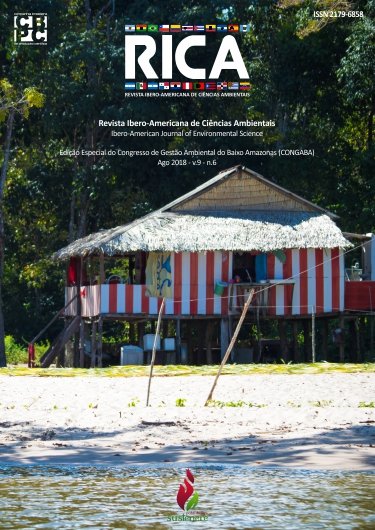Solid waste management at Amapá State University
DOI:
https://doi.org/10.6008/CBPC2179-6858.2018.006.0019Keywords:
Environmental management, Universities, AmazonAbstract
The National Policy on Solid Waste (PNRS - Law 12.305 / 2010) opened new horizons and represented the milestone of a new era for solid waste management in Brazil, holding all actors involved in the product life cycle responsible. Higher Education Institutions (HEIs) are also included in this integrated management, as they develop research, teaching and extension activities, producing various residues that can negatively impact the environment. In this context, this study aims to present reports of experiences and analysis of actions involving solid waste management at Amapá State University (UEAP) from 2015. In this sense, the activities and sources of waste generation were identified. solid; the qualitative and quantitative diagnosis of solid waste generation; awareness raising, sensitization and capacity building workshops for the academic community; and the proposition of appropriate methods of segregation, packaging and final disposal. Approximately 155kg of solid waste is generated per week on campus, with emphasis on organic material and plastic representing 35% and 27% of the total produced, respectively. The sectors that most contribute to the generation are the canteen, pantry / kitchen and classrooms. From the awareness workshops, there was a need to promote continued actions to address campus environmental issues. Aiming at the implementation of selective collection, new collectors were obtained and adequate, distributed in strategic locations to facilitate the appropriate temporary disposal. The appropriate site for the construction of the waste plant was identified and the project was prepared following NBR 11174/1990. For the final destination of recyclable waste, a partnership was formalized through a social contract between the university and a municipal recycling company. The actions proposed in the implementation of UEAP's Solid Waste Management Plan (PGRS) reveal the importance of the involvement of all actors of the academic community to promote continued actions of the plan and environmental adequacy of the institution, as well as contributing to the planning. and waste management in other educational institutions and public bodies.
Downloads
Downloads
Published
Issue
Section
License
The CBPC - Companhia Brasileira de Produção Científica (Brazil CNPJ: 11.221.422/0001-03) the material rights of the published works. The rights relate to the publication of the work anywhere in the world, including rights to renewals, expansions and dissemination of the contribution, as well as other subsidiary rights. All electronically published works may subsequently be published in printed collections under the coordination of this company and / or its partners. The authors preserve the copyright, but are not allowed to publish the contribution in another medium, printed or digital, in Portuguese or in translation.









